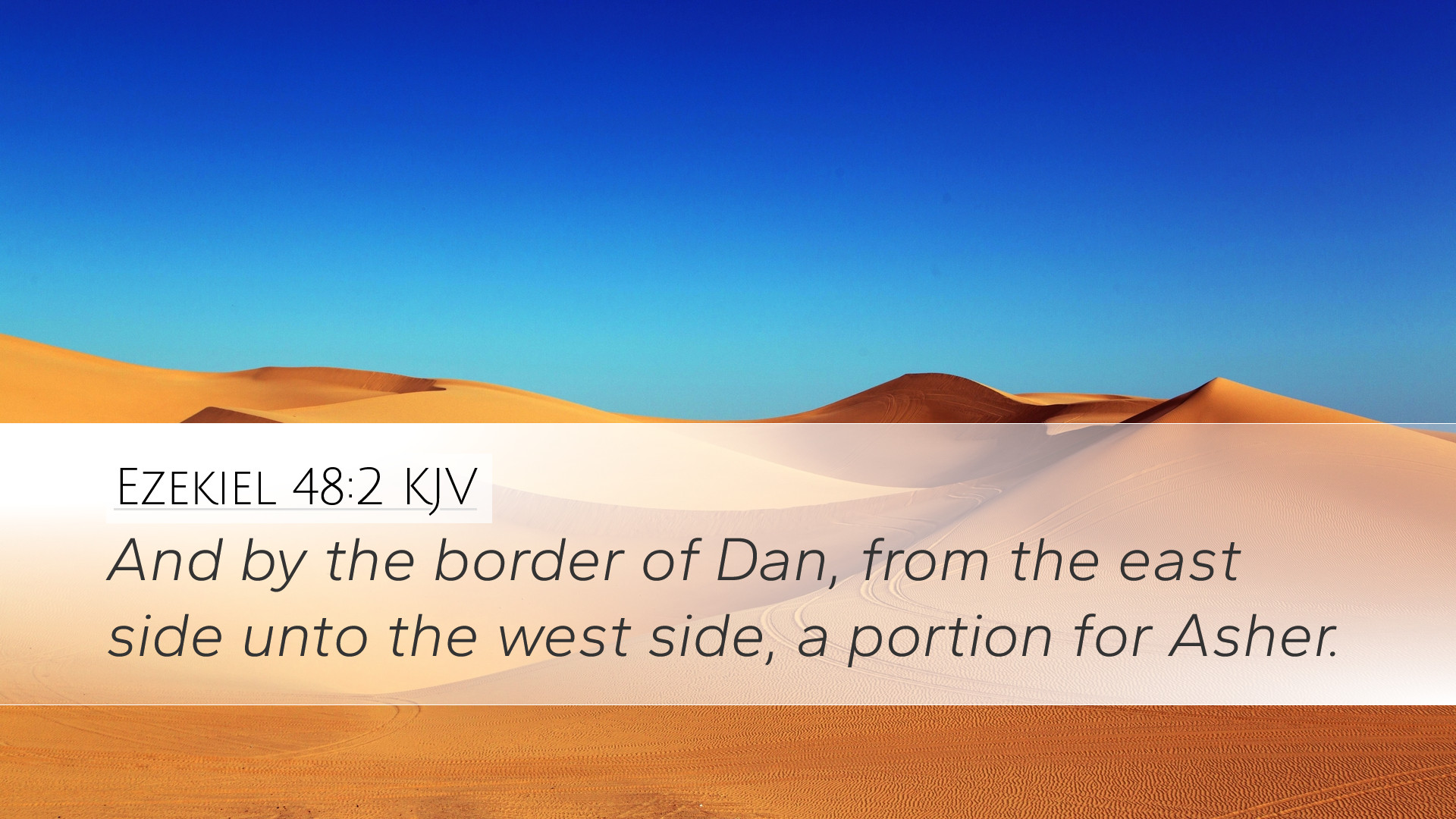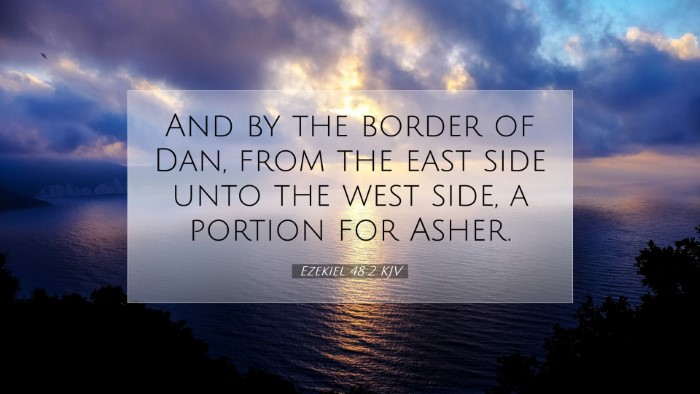Ezekiel 48:2 Commentary
Verse Reference: Ezekiel 48:2 states, "And by the border of Dan, from the east side unto the west side, a portion for Dan." This verse is part of Ezekiel's vision concerning the division of the land of Israel among the tribes, particularly emphasizing the inheritance allocated to the tribe of Dan.
Understanding the Context
Ezekiel, in his later chapters, addresses the future restoration of Israel. The division of land as described in these passages serves as a significant element of God's promise to His people. This vision is deeply rooted in the covenant relationship established between God and Israel, emphasizing God's faithfulness despite Israel's past transgressions.
The Importance of the Tribe of Dan
Historical Background: The tribe of Dan is noteworthy in the narrative of the Israelite tribes as it initially received an inheritance in the western part of the promised land (Judges 18:1-2). However, due to the inability to fully possess their territory, they migrated northward, establishing a stronghold in a region characterized by idolatry and conflict.
- Matthew Henry: In his commentary, Henry notes the significance of the tribe of Dan as both an essential part of God's covenant people and a reflection of Israel's historical and spiritual journey. He emphasizes the need for each tribe, including Dan, to recognize their identity and mission within the larger narrative of redemption.
- Albert Barnes: Barnes highlights the fact that even after the tribe of Dan's failures, God's promise remained. He interprets this allocation as a reaffirmation of God’s grace and the principle that His plans often transcend human shortcomings.
- Adam Clarke: Clarke offers insight on the geographical implications of this land division. He details how the delineation of Dan's territory is not just about land ownership but the theological implications regarding God's presence and blessing upon each tribe.
Theological Implications
Ezra's vision reveals several theological themes pertinent to scholars and clergy:
- Divine Sovereignty: The allocation reflects God's sovereignty in distributing land according to His will. Every tribe receives its portion not due to merit but because of God's choice.
- Covenant Faithfulness: The inheritance designated for Dan serves as a reminder of God's unchanging nature. The Israelites, despite their disobedience and idolatry, can expect God’s faithfulness to His promises through the covenant.
- Restoration and Hope: In the context of exile and despair, this vision provides hope. It emphasizes that God has not forgotten His people and that restoration is part of His redemptive plan.
Applications for Ministry
For pastors, students, and theologians, Ezekiel 48:2 offers profound insights for teaching and application:
- Identity and Purpose: Like Dan, modern believers must understand their identity within the church and the broader body of Christ. It invites reflection on how individual congregations fulfill their roles in advancing the kingdom of God.
- Ministry of Reconciliation: The theme of restoration can inspire ministries focused on reconciliation, reminding leaders that God continually invites His people back into right relationship with Him.
- Encouragement in Failure: Just as God included Dan despite its failures, leaders should encourage those in their ministries who may feel they have strayed beyond redemption, reinforcing the idea that no one is beyond God's grace.
Conclusion
Ezekiel 48:2 provides a glimpse into God’s redemptive plan as He outlines the inheritance for the tribes of Israel. This verse is rich with meaning, reminding believers of the importance of their identity, the grace of God's covenant, and the hope of restoration. The teachings extracted from public domain commentaries like those of Matthew Henry, Albert Barnes, and Adam Clarke collectively emphasize that in every aspect of life, God's faithfulness stands supreme, and His plans endure even when human actions seem to falter.


